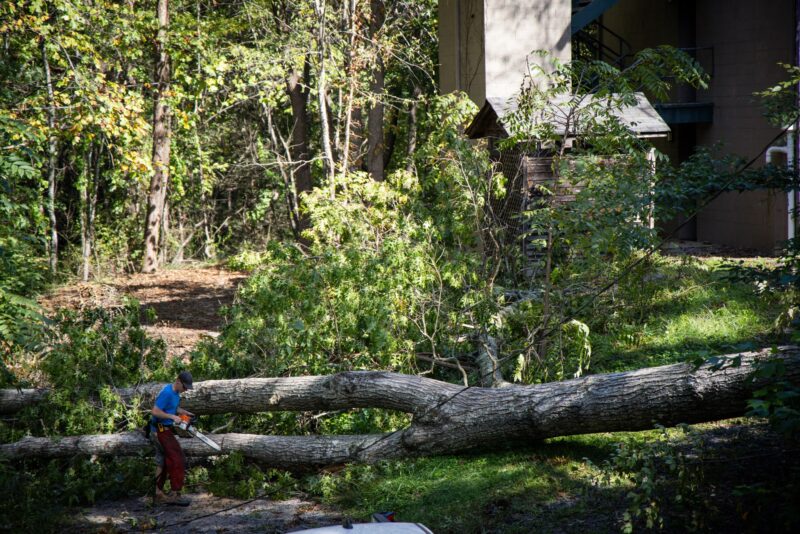
When Hurricane Helene swept through the region, the damage to Warren Wilson College’s forests was profound. Innumerable trees were lost, including a significant number of white pines and white oaks. In the face of this devastation, the College community has rallied to turn loss into opportunity, transforming fallen trees into valuable resources that support sustainability, education, and community well-being.
This work is more than practical—it’s deeply personal. It reflects who we are as a College: resourceful, connected to the land, and committed to sustainability. The challenges posed by the storm have brought us closer together, reminding us that resilience is about finding opportunity in hardship and embracing the cycles of nature.
“Our job as forest managers is to rethink our practices to better understand and mimic natural patterns, adding resilience to our Western North Carolina ecosystems in the face of changing climatic conditions,” Dave Ellum, Ph.D., Dean and Director of The Center for Working Lands.
Repurposing for Community and Campus Needs
Some of the downed trees are being milled by the Forestry Crew into building materials, ensuring that their timber continues to serve a purpose. Firewood produced from the fallen wood is also being distributed to the Warren Wilson College community through Firewood Day.
The forestry crew is putting white oak logs to innovative use by inoculating them with shiitake mushroom spores. These logs will yield large, flavorful shiitake mushrooms twice a year, which will be sold in the college’s farm store. In addition to fresh mushrooms, students will continue to produce tinctures and medicinal products.
The fine woodworking crew is taking select pieces of high-quality wood for crafting projects, transforming remnants of the storm into both art and functional designs. Other logs are chipped into organic matter, enriching the soil for agricultural and landscaping use across campus.
Exploring Biochar and Supporting Research
In line with the college’s commitment to sustainability and research, faculty and students are partnering with the USFS to explore biochar production. This process involves superheating wood waste through pyrolysis, resulting in pure carbon that serves as a smokeless, highly effective soil amendment. Biochar not only enhances soil health but also captures carbon, contributing to climate resilience.
A Renewed Forest Ecosystem
Beyond practical uses, some fallen trees are being left in the forest to serve as natural habitats for wildlife. The increased sunlight reaching the forest floor will spur new growth, promoting biodiversity and diversifying the forest’s age classes. However, this regeneration comes with challenges, as the college remains vigilant about managing invasive species that could take advantage of the altered landscape.
Rebuilding & Resilience
At Warren Wilson College, the story of Hurricane Helene’s fallen trees is one of turning loss into renewal. By giving these trees new life as building materials, firewood, mushrooms, biochar, and more, we’re honoring their legacy while strengthening our community and campus.
Even as we rebuild, we’re keeping an eye on the future—caring for our forests, nurturing new growth, and ensuring that this land remains a thriving, diverse ecosystem for generations to come. In every mushroom log, wood chip, and new sapling, we see hope and the promise of renewal.